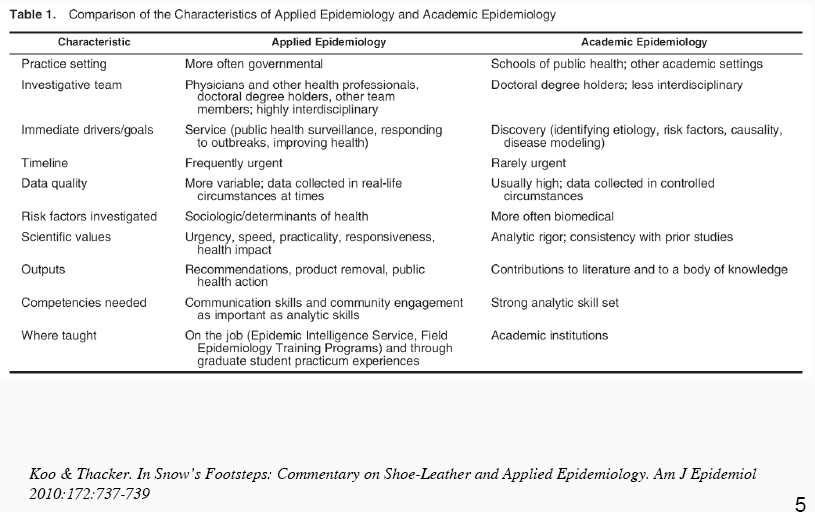Then I realized that this breakdown likely works pretty well for other fields too. I sent a link to an economist friend, who responded: "No doubt this is similar with econ. The theoreticians live in a world of (wrong) assumptions, while the practitioners are facing the tough policy challenges. And there are quite a few similarities with the below...such as urgency etc."
You can replace "physicians" with "economists" or many other professions and the chart holds up. Contrasting academic economics researchers with policymakers, the fields for Timeline, Data quality, Scientific values, Outputs, and Competencies needed all hold up pretty well.
Many positions that are basically epidemiological in nature are filled by physicians with clinical training but very little formal public health and epidemiology training, which is strongly paralleled in the policy realm. Some sort of graduate training is generally necessary for many jobs, so those aiming for the applied track tend to get multipurpose 'public policy' degrees often viewed as weak by the more purist academics, while those studying public policy deride the inapplicability of the theoretical work done by academics. And the orientation of many academic fields towards a set of skills primarily useful in pursuits that aren't highly valued by the more applied practitioners may go a long way in explaining animosity between the two camps.
